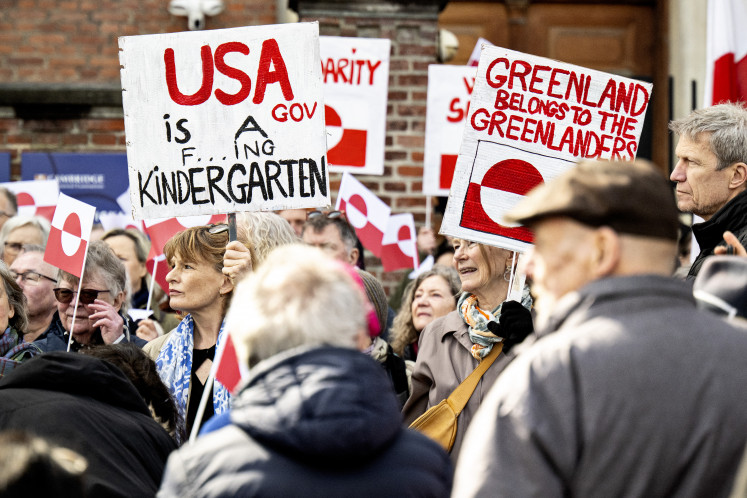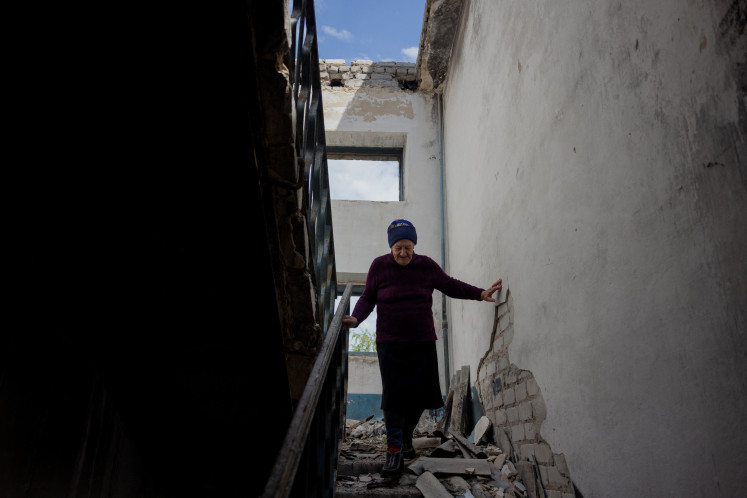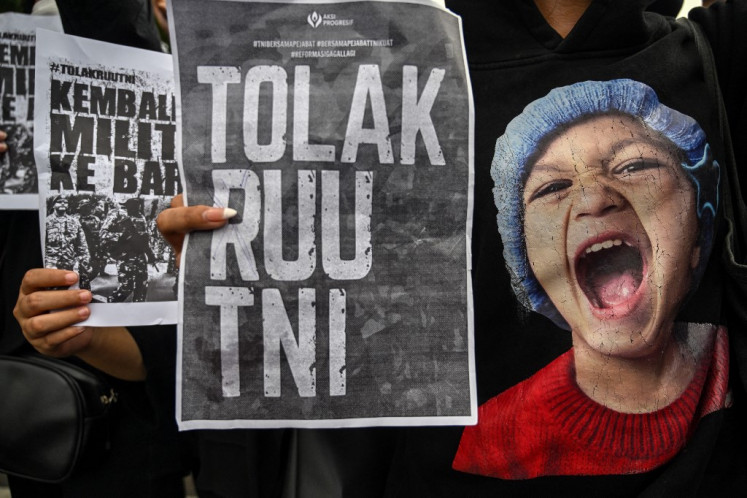EDITORIAL: Jokowi's diplomacy
Indonesia’s assertive diplomacy as shown in the annual G20 meeting is a message of the country’s bid to play a bigger role that it deserves in world fora.
Change text size
Gift Premium Articles
to Anyone
 President Joko "Jokowi" Widodo (left) and US President Donald Trump share a chuckle before commencing their maiden bilateral meeting on the sidelines of the G20 summit in Hamburg, Germany on July 8. (JP/Fedina S. Sundaryani)
President Joko "Jokowi" Widodo (left) and US President Donald Trump share a chuckle before commencing their maiden bilateral meeting on the sidelines of the G20 summit in Hamburg, Germany on July 8. (JP/Fedina S. Sundaryani)

Beyond the human yet popular approach of diplomacy á la President Joko “Jokowi” Widodo, characterized by his wefie sessions and video blogging with fellow world leaders, Indonesia’s international standing has gained prominence, as shown during the G20 summit in Hamburg, Germany, over the weekend.
The elite forum restricted to the world’s most developed nations and emerging economies saw Indonesia playing a pivotal role, rather than second fiddle, as was apparent in the joint statement of leaders underlining the need for international cooperation in countering terrorism. The cooperation will take shape in information sharing between intelligence and law enforcement agencies, which is a timely move given the spread of terrorist cells across the globe.
The summit came against the backdrop of the recapturing of Mosul that signals the imminent defeat of the Islamic State (IS) terrorist group in Iraq. Many have warned, however, that a new danger is lurking as the IS foreign fighters with their bomb assembling and combat skills will return home and cause trouble there. The spillover of the fight against IS is now occurring in Marawi in the nearby southern Philippines.
As this daily has reported, Indonesia, which has been fighting terrorism for decades, won praise from fellow G20 members for its ability to balance hard and soft approaches through counterterrorism operations to foiling attacks and deradicalizing convicted terrorists. Despite its imperfections, Indonesia is seen as a role model in the fight against terrorism, as a result of its compliance with the rule of law, rather than excessive use of power.
For sure, Indonesia is well experienced in counterterrorism and will become a force to reckon with, taking advantage of its moderate strain of Islam. Having the world’s biggest Muslim population while being democratic is an asset that Indonesian leaders, including Jokowi, have capitalized on in a bid to contribute to world peace, as promulgated in the preamble of the 1945 Constitution.
Outside the terrorism issue, Indonesia’s voice was loud and clear in asserting its national interests vis-à-vis the developed world. During the G20 summit, Jokowi sought every avenue available to convince the United States and European Union members to lift their barriers against Indonesia’s key export commodity, palm oil.
As the world’s largest palm oil producer, Indonesia has been suffering from the restriction, which has been imposed on the pretext of massive deforestation resulting from improper subsidies the government gives the industry.
Indonesia also used the G20 forum to confirm its commitment to the reduction of greenhouse gas emissions that we and the world agreed upon in the Paris Agreement in 2015. Then-president Barack Obama included the US in the deal to fight climate change, but his successor Donald Trump, who attended the G20 summit in Hamburg, has retracted the US commitment.
Indonesia’s assertive diplomacy as shown in the annual G20 meeting is a message of the country’s bid to play a bigger role that it deserves in world fora. Jokowi’s attendance at more international events in the future will testify to this.









